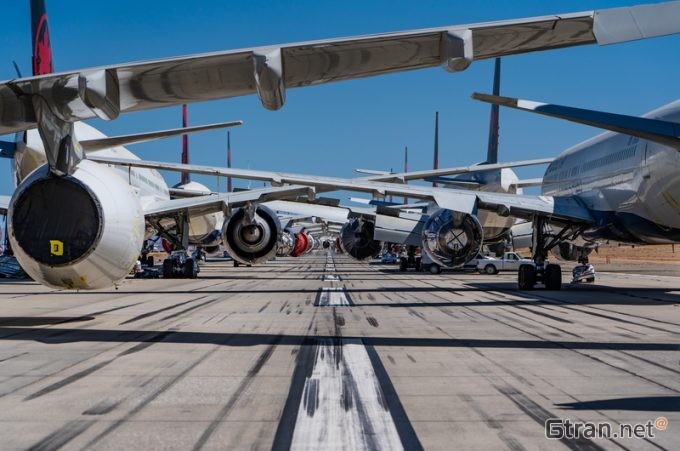Aged freighters are destined for scrappage, with the raft of new orders set to hit the market by 2027 threatening oversupply as capacity demand continues to fall.
This is the assessment of Trade and Transport Group’s newly published Freighter Market Outlook 2023-2027, which describes the global cargo fleet as at a “major inflection point”, following the build-up of a backlog of freighters representing close to 40% of the in-service fleet.

“Unfortunately, as of late Q1 23, world air cargo traffic had contracted every month since March 2022,” said Trade and Transport Group MD Thomas Crabtree.
“This is due to economic uncertainty related to Russia’s invasion of Ukraine, inflation, China’s strict anti-Covid lockdowns impeding production and supply chains returning to some normalcy after the unprecedented chaos in container shipping of 2020 and 2021.”
Noting that some pundits were predicting a return to positive growth by the end of the year, Mr Crabtree was more sceptical of what this would mean for capacity usage.
He claimed weakening in air cargo traffic and yields, seen since March last year, looked set to continue until “at least” Q3 this year and noted that this had led to the slowdown in freighter-ordering experienced since the end of last year.
“Due to the arrival of the more modern, efficient freighter aircraft types in the 2023-2024 timeframe, we believe more than 200 freighters are at risk of near-term retirement,” he said.
“Risk of overcapacity is particularly acute in the narrowbody and, potentially, the medium-widebody segments. This means the least-efficient freighter capacity is heading for the scrapper.”
Mr Crabtree said with freighters becoming “golden” during years of heightened demand brought on by the pandemic, the backlog of new orders now stood at some 867 units. Of these, nearly 400 are narrowbodies on order with conversion specialists, but he suggested there were ways the risk of oversupply could be mitigated, pointing first to deferring passenger-to-freighter conversions.
“Reduced utilisation, particularly for older, less-efficient types which have been fully depreciated,” he also suggested, as well as: “Raising passenger airplane feedstock lease rates, due to easing Covid restrictions, and delaying the delivery of newer passenger aircraft types across the board, and keeping feedstock in passenger service longer than planned.”
Former Boeing analyst Mr Crabtree set up Trade Data Service, part of Trade and Transport Group this year with fellow analyst and former head of Cargo Facts Consulting Frederic Horst.


